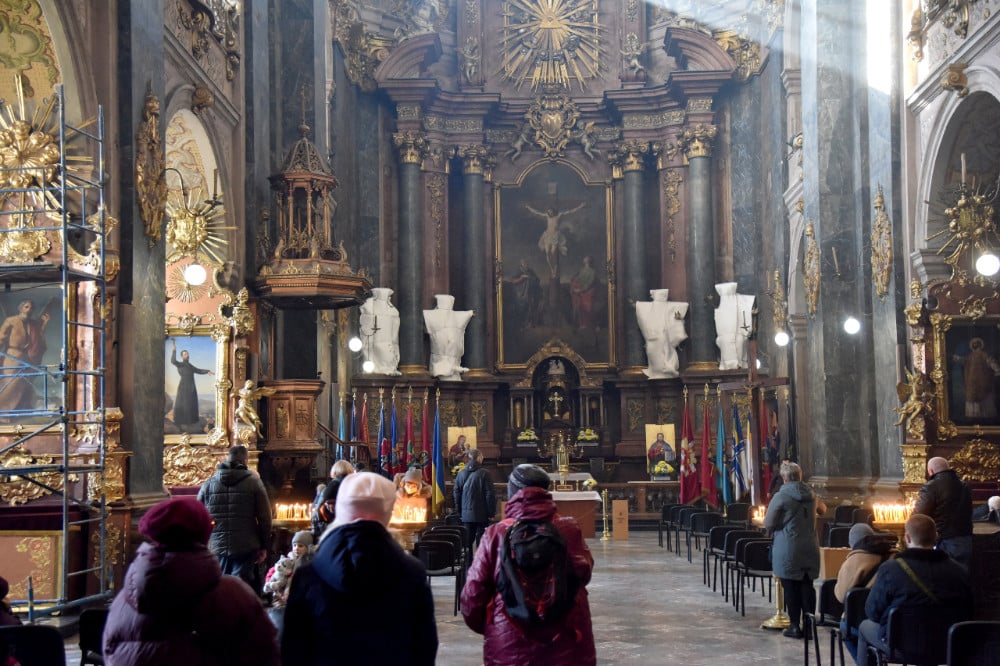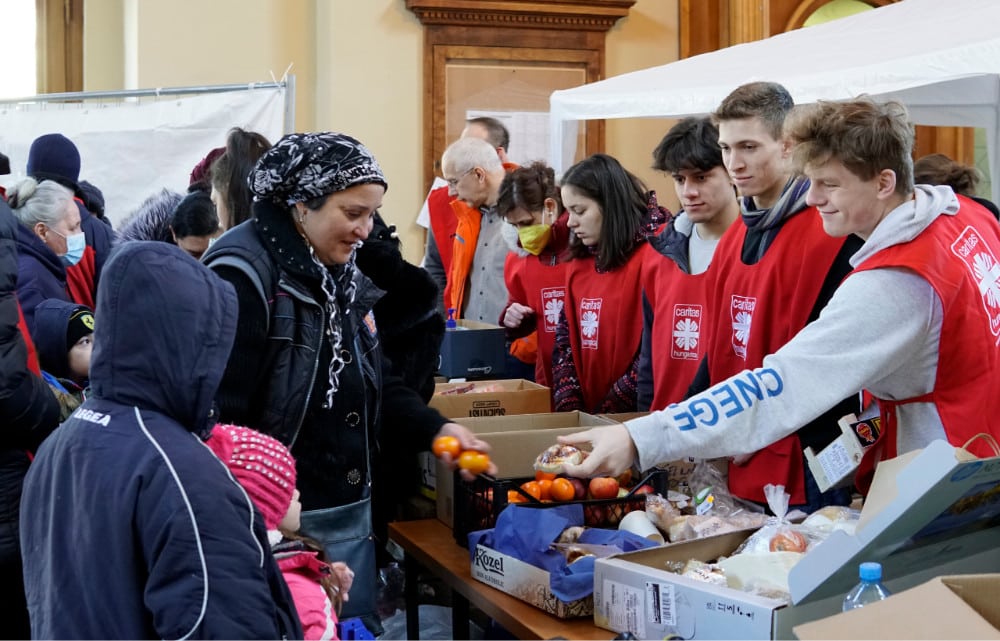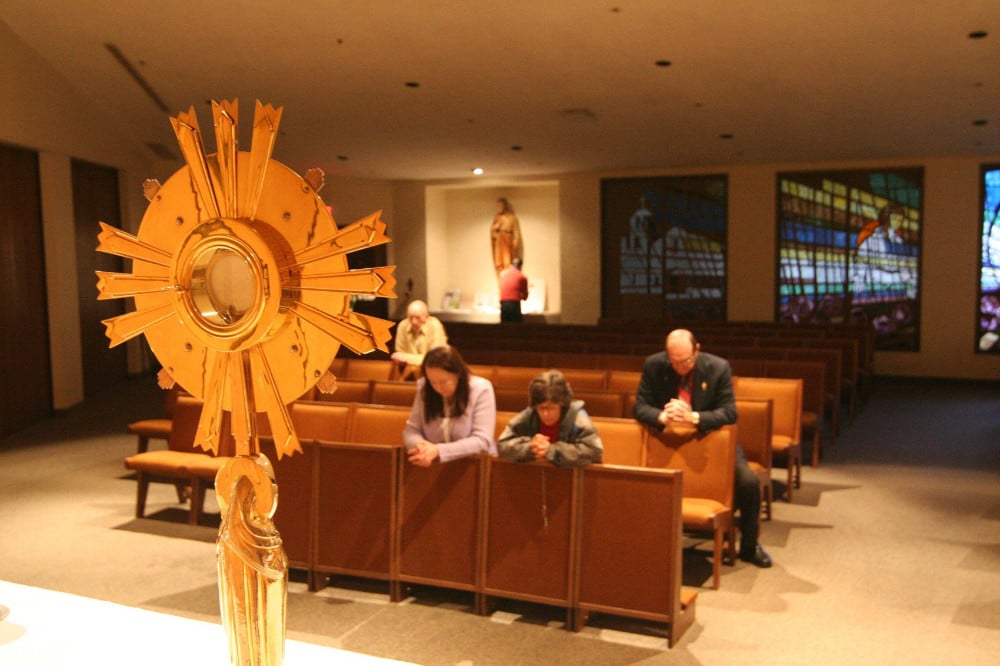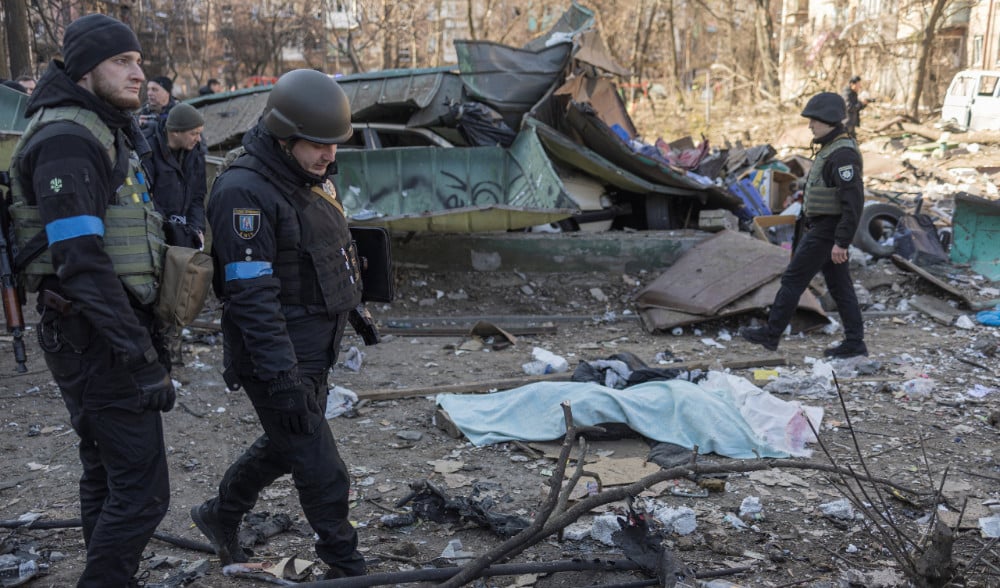 For tragic reasons, Americans are thinking a lot about Ukraine. It behooves American Catholics to think about Ukrainian Christianity, and especially to consider one aspect: the allegiance of Ukrainian Catholics to the papacy.
For tragic reasons, Americans are thinking a lot about Ukraine. It behooves American Catholics to think about Ukrainian Christianity, and especially to consider one aspect: the allegiance of Ukrainian Catholics to the papacy.
Christianity came to Ukraine around A.D. 800. Historically, two great cities were the centers of missionizing: Rome and Constantinople. Missionaries from Rome went across Western Europe, to Lithuania and Poland, taking with them what was familiar back home in Rome — the customs, the culture and the language (Latin). These elements came to be fixed in Western European Christian life.
In turn, Western European Christians took these customs along when they went far and wide as missionaries or migrated to North or South America, the Philippines, Australia, New Zealand or Africa.
Other missionaries took the Gospel from Constantinople to Eastern Europe, the Middle East, modern Bulgaria, Serbia, Romania, Ukraine, Belarus and Russia. As did their Roman counterparts, they carried with them their own tastes and habits.
Politics and differences of opinion eventually reared their ugly heads. As they abandoned political allegiance to Rome, many Christians in Constantinople’s orbit rejected the bishop of Rome’s spiritual authority. They called themselves the Orthodox. Western Europe stayed with Rome.
Christians dreamed of reconciliation. In 1585, many Ukrainian Christians united with the papacy. Today, their spiritual descendants constitute a vibrant group of Ukrainians. The country still counts as a majority people who adhere to the Orthodox tradition, but Ukrainian Catholics are numerous, especially in the west of the country.
Their liturgy is ancient, quite different from that experienced by most Catholic Americans, whose ancestors lived in Western Europe, evangelized by Roman missionaries. The Latin language, for example, was never heard in Ukraine, let alone spoken or used in worship. Very many incidentals were, and are, different from Latin Catholicity. Churches are arranged differently, the art is distinct, priests are married, but Ukrainian Catholics celebrate the seven sacraments, ordain deacons, priests and bishops, and believe every word of the Catechism to which Catholics of the Roman rite adhere. They regard the pope to be the successor of Peter, whom Jesus appointed to lead the Church.
Recognizing the pope as Peter’s heir has been a problem. For centuries, until independence in 1991, Ukrainian Catholics constantly endured Russian demands that they repudiate the papacy. Many senior Ukrainians remember it well. Some Ukrainians complied through the years. Many did not comply, and they paid an awful price.
The Church reveres Ukrainian Catholics for their fortitude and lauds those who experienced such sufferings, not rarely including death itself, at the merciless hands of Russian authorities, but individual Catholics should make it more than singing the praises of martyrs and the devout.
Ask these questions: What do the history of Ukrainian Catholics and their bond with the bishop of Rome mean for any Catholic’s spiritual life? What difference does recognition of the bishop of Rome make in following Christ? In being a good Christian?
It makes much difference, as countless martyrs, other than Ukrainians, can testify, and have testified through the centuries.
The papacy is the connection with Christ, pure and simple, the unbroken link with Peter, and with his purpose, his legacy and his position. True, each pope is human — frankly, as was Peter. Some were scheming and sinful. Many were saints. More than a few died for the Gospel. It is not about anyone’s worthiness but about the papacy’s function, proclaiming exactly the Gospel voiced by Christ and heard by Peter.
Catholics are hardly the only good people on earth, but while personal conviction is vital, and honor and goodness manifest, the best discipleship is reflecting what Jesus was, said and did. Jesus explicitly appointed Peter to lead and guide Christians.
Pray for the Ukrainian people. Assist them if possible. Look at the Ukrainian Catholics’ stubborn devotion to the papacy. Consider why such devotion is important. Why is it a part of good discipleship?
Msgr. Owen F. Campion is OSV’s chaplain.







